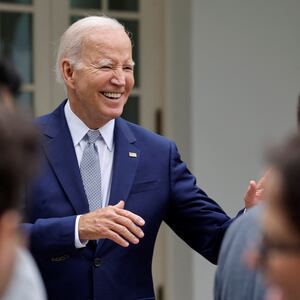After an historic five-month strike, Hollywood scribes will officially put down the picket signs and pick up their pens at midnight, with the Writers Guild of America board telling the union on Tuesday evening that it had voted unanimously to uphold the “exceptional” deal it carved out with the studios and streamers.
“Today, our Negotiating Committee, WGAW Board, and WGAE Council all voted unanimously to recommend the agreement” to the union’s 11,500 members, the WGA West tweeted. “The strike ends at 12:01 am.”
While this allows writers to go back to work in just a few hours, it doesn’t mean that the “tentative agreement” is a done deal. The membership will still need to vote to ratify the new three-year contract in a referendum that union leadership said in an email would be held between Oct. 2 and Oct. 9.
The WGA, in looking to sell the deal made with the Alliance of Motion Picture and Television Producers on Sunday night to its members, also released the complete 94-page contract and a summary of its terms.
As stated in the guild’s Sunday night email, the new contract includes “meaningful gains and protections for writers in every sector of the membership,” including wage increases, staffing requirements in writers rooms, improved residuals for streaming shows, and guardrails for the use of artificial intelligence.
More specifically, the deal mandates a 5 percent increase to minimum wages in the first year of the contract—less than the 6 percent the guild called for earlier this year, but commensurate with what the Directors Guild of America negotiated in June without going on strike.
The contract also preserves the writers’ room, something that has been a source of increasing concern in the age of so-called “mini-rooms” and A.I. It stipulates that a minimum of at least three writers and three writer-producers will be required for TV shows of up to six episodes, and preserves staffing levels of up to six writers for shows of 13 or more episodes. (The WGA had initially wanted a floor of six writers and a ceiling of 12 depending on season length.)
Regarding residuals, the agreement requires streamers to disclose data on the hours viewers spend watching “high budget streaming programs” like Netflix original programming, with residuals being paid out to match those numbers. Residuals based on overseas viewership will also now be based on a streamer’s number of foreign subscribers, a 76 percent increase over the previous contract for the largest platforms.
Protections around the use of A.I. were reportedly the final sticking point as the two sides hashed out a contract in a marathon five-day negotiating session that lasted into the weekend. The new deal stipulates that A.I. can’t be used to write or rewrite “literary material,” and any A.I.-generated material “can’t be used to undermine a writer’s credit or separated rights.”
What’s more, studios and streamers can’t force a writer to use A.I. software like ChatGPT, and must disclose to their writers when any material they’re given has been artificially generated. The WGA also won the future right to “assert that exploitation of writers’ material to train AI is prohibited by MBA or other law,” according to the contract summary.
“These are essentially protections that the companies told us, to our faces, that they would NEVER give us,” comedian and writer Adam Conover tweeted. “But because of our solidarity, because they literally cannot make a dollar without us, they bent, then broke, and gave us what we deserve. WE WON.”
And in the second-most substantial development of the day related to the strike, the Los Angeles eatery Swingers Diner announced Tuesday that game show host Drew Carey is still picking up the tab for all writers who flash their union card. “We know,” the diner said on Instagram, “he is the BEST!”
The writers’ strike, which began May 2, lasted 148 days—the second-longest labor action in guild history after 1988’s 153-day strike. The actors’ guild, SAG-AFTRA, declared its own separate strike in mid-July. That action remains ongoing, with no end in sight—the studios’ representatives have given no sign they’re ready to come to the table with SAG-AFTRA leadership. Now that the writers’ agreement is on its way to ratification, however, that is expected to change.
“Our fight isn’t over - it’s just heating up!” SAG-AFTRA tweeted in the minutes after the WGA announced the results of its leadership votes on Tuesday night. “We’re committed to securing a fair contract because we deserve nothing less. Let’s keep pushing, keep fighting, and show the world our determination!”







